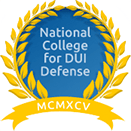
Passaic County Harassment Defense Lawyer
People sometimes use the word “harassment” to mean something bothersome or irritating — not what you’d imagine for a criminal charge. But under New Jersey law, harassment is a serious matter because of how intimidating and extreme it can become. It’s quite common in the context of domestic violence, but anyone in Passaic County can face a harassment charge even outside a romantic or family relationship.
The Passaic County criminal defense attorneys at the Law Offices of Jonathan F. Marshall have handled countless harassment cases over our 100 combined years of legal experience. If you or a loved one in Paterson, Passaic, Hawthorne, North Haledon, Woodland Park, Little Falls, Totowa or Bloomingdale is facing a harassment charge, please call our Wayne office for a free consultation.
Harassment Charges in Passaic County
New Jersey’s statutes say that under N.J.S.A. 2C:33-4, a person may be charged with harassment if he or she demonstrates harassing conduct in one of three areas:
- Communications. Communication of any kind — verbal, written, photos, phone calls, recordings, text messages, even gestures — can constitute harassment if it’s intended to cause alarm or annoyance, uses offensively coarse language, or is made at extremely inconvenient hours. This holds true also for anonymous communication. Under the statute, the harassment may be deemed to have occurred either where it originated or where it was received. Hypothetically, it also could be through a third party. To determine whether a form of communication rises to this definition, a judge considers all circumstances surrounding the incident, including the parties’ prior history. The court also decides what’s “offensively coarse” or “extremely inconvenient,” based on factors such as age, gender, setting, and to whom the communication is placed. For instance, it’s unlikely that a 911 call would ever be placed at an “inconvenient” hour, but repeated calls to 911 without reporting an emergency and just cursing at the dispatchers or pranking them with sounds could net a criminal harassment charge.
- Offensive Touching. This may be somewhat confusing, but striking, shoving, kicking, and other offensive touching — or threatening to do so — qualifies as harassment provided it does not amount to battery or aggravated assault. The distinction comes down to contact that’s considered offensive but not causing bodily injury or fear of such injury. The person on the receiving end feels more annoyance or alarm rather than being frightened of imminent harm.
- Alarming Conduct. This third area covers any type of behavior where the purpose is to seriously annoy or alarm another person. The conduct must go beyond simple annoyance. A court also will weigh various factors here to determine if what the accused harasser has been doing rises to meet this definition.
Intent is a key element for a harassment charge in Passaic County. Prosecutors must demonstrate that the communication, touching, or other conduct occurred for the purpose of harassing another person, irritating, disturbing, or bothering them to a substantial level. Profanity itself does not indicate harassment, although it may be insensitive to the recipient.
By design, the statute speaks in generalities and allows for latitude. Those gray areas also provide Passaic County defense attorneys with ways to craft effective defense strategies. For instance, if one estranged or divorced spouse sends another dozens of emails over the course of a few months, the volume of messages itself wouldn’t constitute intent to harass or annoy.
A court would weigh the content of the messages. If the tone is civil, there is no profanity, and the subject matter constitutes topics such as visitation and child support, there is no harassment. New Jersey’s court rulings have provided some other guidance in domestic situations, such as in State v. Hoffman, 149 N.J. 564, 695 A.2d 236 (1997), where one party mailed another copies of a torn restraining order, and in Cesare v. Cesare, 154 N.J. 394, 713 A.2d 390 (1998), regarding one party’s word choice.
In general, harassment is classified as a petty disorderly persons offense (what could be called a misdemeanor in other parts of the country) and handled at the municipal court level, such as the Passaic Municipal Court or the Paterson Municipal Court. If convicted at this level, a person can receive up to six months in the Passaic County Jail, as well as a fine up to $1,000.
If you’re convicted of harassment at this level as part of a domestic situation, you could face additional restrictions, such as a restraining order.
In addition, if you were on probation or parole when you were charged with harassment, you could face a fourth-degree felony, handled at the Passaic County Courthouse in Paterson. If convicted, you could serve up to 18 months in a New Jersey state prison and have to pay a fine up to $10,000.
Passaic County Harassment Defense Attorneys
We at the Law Offices of Jonathan F. Marshall know from our clients’ experience that every case of harassment is fact-sensitive and must meet a particular burden of proof, no matter how intricate. Our lawyers have considerable knowledge in this area and a significant track record as well.
Whether you’ve been charged with harassment at the municipal level or must appear in Passaic County Superior Court in Paterson, a harassment charge can have long-lasting consequences. Like any criminal matter, this type of charge can be attached to your public record for years, complicating your efforts to obtain a job, a mortgage, or a professional license.
The Passaic County criminal defense lawyers at the Law Offices of Jonathan F. Marshall believe in providing every client with a vigorous defense. We’re glad to answer any questions you might have about New Jersey’s harassment statutes, the criminal justice system, or the circumstances surrounding your situation or that of a loved one. Our initial case evaluation is always free.
Visit us today at our Wayne office at 73 Mountainview Blvd., or call us. You also can reach us through our website’s e-mail to discuss your legal options. Learn more about what the Law Offices of Jonathan F. Marshall can do for you.








